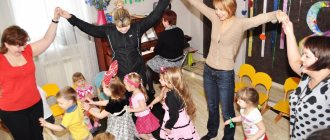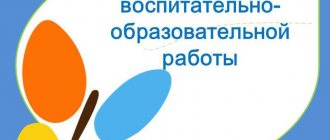German Sadulaev. Victory Day.
German Sadulaev
VICTORY DAY
Story
Old people sleep little. In youth, time seems like an irredeemable ruble; the time of an elderly person is copper change. Wrinkled hands carefully put them in piles minute by minute, hour by hour, day by day: how much is left? Sorry every night.
He woke up at half past five. There was no need to get up so early. Even if he had not gotten out of bed at all, and sooner or later this was bound to happen, no one would have noticed. He might not get up at all. Especially so early. In recent years, he increasingly wanted to not wake up one day. But not today. Today was a special day.
Alexey Pavlovich Rodin got up from the old creaking bed in a one-room apartment on the street... in old Tallinn, went to the toilet, relieved his bladder. I began to clean myself up in the bathroom. He washed his face, brushed his teeth, and spent a long time scraping the stubble from his chin and cheeks with a well-worn razor. Then he washed his face again, rinsing off the remaining soap suds, and refreshed his face with aftershave lotion.
Walking into the room, Rodin stood in front of a wardrobe with a cracked mirror. The mirror reflected his worn body with old scars, dressed in faded shorts and a T-shirt. Rodin opened the closet door and changed his underwear. For a couple more minutes he looked at his ceremonial jacket with medals of the order. Then he took out the shirt he had ironed the day before and put on his uniform.
It was as if twenty years had been lifted from my shoulders. In the dim light of the chandelier, dimmed by time, the captain's shoulder straps burned brightly.
Already at eight o'clock Rodin met at the front door of his house with another veteran, Vakha Sultanovich Aslanov. Together with Vakha, they went through half the war, in the same reconnaissance company of the First Belorussian Front. By 1944, Vakha was already a senior sergeant and had a medal “For Courage”. When the news came about the eviction of the Chechens, Vakha was in the hospital after being wounded. He was immediately transferred from the hospital to a penal battalion. Without guilt, based on nationality. Rodin, then a senior lieutenant, went to his superiors and asked to return Vakha. The intercession of the company commander did not help. Vakha ended the war in a penal battalion and immediately after demobilization he was sent to settle in Kazakhstan.
Rodin was demobilized in 1946, with the rank of captain, and was assigned to serve in Tallinn, as an instructor in the city party committee.
Back then, there was only one "n" in the name of this city, but my computer has a new spell checker, I will write Tallinn with two "l" and two "n" so that the text editor does not swear and underline this word with a red wavy line .
After the rehabilitation of the Chechens in 1957, Rodin found his front-line comrade. He made requests, taking advantage of his official position - by this time Rodin was already the head of the department. Rodin managed to do more than just find Vakha, he got him a call to Tallinn, found him a job, helped him with an apartment and registration. Vakha has arrived. Rodin, starting his efforts, was afraid that Vakha would not want to leave his native land. He made sure that Vakha could transport his family.
But Vakha came alone. He had no one to transport. The wife and child died during the eviction. They fell ill with typhoid in a freight car and died suddenly. Parents died in Kazakhstan. Vakha has no close relatives left. This is probably why it was easy for him to leave Chechnya.
Then there was... life. Life?.. probably, then there was the whole life. There was good and bad in her. True, a whole life. After all, sixty years have passed. A full sixty years have passed since the end of that war.
Yes, it was a special day. Sixtieth anniversary of the victory.
Sixty years is a lifetime. Even more. For those who did not return from the war, who remained twenty years old, this is three lives. It seemed to Rodin that he was living these lives for those who did not return. No, this is not just a metaphor. Sometimes he thought: these twenty years I have been living for Sergeant Savelyev, who was blown up by a mine. For the next twenty years I will live for Private Talgatov, who died in the first battle. Then Rodin thought: no, I won’t have much time. Better yet, ten years. After all, living to thirty is no longer so bad. Then I will have time to live for three more of my dead soldiers.
Yes, sixty years is a long time! A whole life or six makeweights to the cut short lives of dead soldiers.
And yet this is... if not less, then probably the same as four years of war.
I don't know how to explain this, others before me have already explained it much better. A person lives for four years in a war, or six months in an arctic winter, or a year in a Buddhist monastery, then he lives for a long time, another whole life, but that period of time remains the longest, the most important for him. Maybe because of the emotional tension, because of the simplicity and vividness of the sensations, maybe it’s called something else. Maybe our life is measured not by time, but by the movement of the heart.
He will always remember, will compare his present with that time, which will never turn into the past for him. And the comrades who were next to him then will remain the closest, the most faithful.
And not because good people will never meet again. It's just that those others... they won't understand much, no matter how you explain it. And with your own people, you can even just be silent with them.
Like with Vakha. Sometimes Rodin and Vakha drank together, sometimes they argued and even quarreled, sometimes they simply remained silent. Life was different, yes...
Rodin got married and lived in marriage for twelve years. His wife got a divorce and went to Sverdlovsk to live with her parents. Rodin had no children. But Vakha probably had many children. He himself didn’t know how much. But Vakha did not marry. Vakha was still a reveler.
Neither one nor the other had a big career. But in Soviet times, respected people retired to a decent pension. They stayed in Tallinn. Where were they supposed to go?
Then everything began to change.
Rodin didn’t want to think about it.
Everything just changed. And he found himself in a foreign country, where they were forbidden to wear Soviet orders and medals, where they, who had soaked the land from Brest to Moscow and back to Berlin with their blood, were called occupiers.
They were not occupiers. Better than many others, Rodin knew about everything wrong that was happening in that country that had sunk into oblivion. But then, those four years... no, they were not occupiers. Rodin did not understand this anger of prosperous Estonians, who even under Soviet rule lived better than Russian people somewhere in the Urals.
After all, even Vakha, Rodin was ready that after the eviction, after that monstrous injustice, the tragedy of his people, Vakha would begin to hate the Soviet Union and especially the Russians. But it turned out that this was not the case. Vakha has seen too much. In the penal battalion there are Russian officers who heroically escaped captivity and were demoted to rank and file for this, in overcrowded zones and prisons. One day Rodin directly asked whether Vakha blamed the Russians for what happened.
Vakha said that the Russians suffered more than other nations from all this. And Stalin was generally Georgian, although this is not important.
And Vakha also said that together, together, we not only sat in prison zones. Together we defeated the fascists, sent man into space, built socialism in a poor and ruined country. Everyone did this together and all of it - and not just the camps - was called: the Soviet Union.
And today they put on front-line orders and medals. Today was their day. They even went into a bar and took one hundred grams of front-line soldiers, yes. And there, in the bar, young men in fashionable military uniform with stripes stylized as “SS” symbols called them Russian pigs, old drunkards and tore off their awards. They also called Wakha a Russian pig. The knife was just lying on the counter, probably the bartender was using it to chop ice.
Vakha hit the young Estonian between the ribs with a precise blow.
There was also a telephone on the counter, and Rodin threw its cord like a noose around the neck of another SS man. There is no longer that strength in the hands, but it is not needed, every movement of the old scout is worked out to the point of automatism. The frail boy wheezed and fell to the floor.
They returned to that present time. They were Soviet intelligence officers again, and there were enemies around. And everything was correct and simple.
For another five minutes they were young.
While they were being kicked to death on the wooden floor.
They added another five minutes to those four years of their real life. And this was more than the few years that they could have lived if they had not received orders and medals on the day of the Great Victory.
And I don't feel sorry for them at all. I simply do not dare to humiliate them with my pity.





